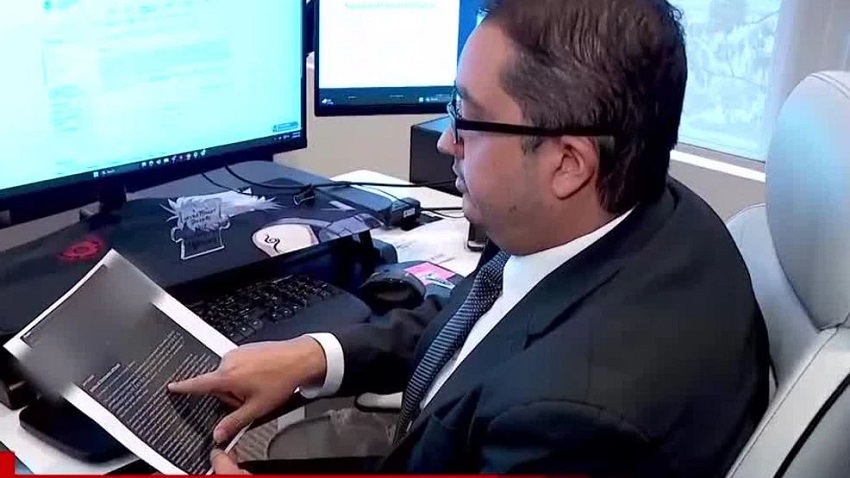SOUTH JORDAN, Utah — A recent email from the U.S. Department of Homeland Security (DHS) has raised alarm after it mistakenly instructed a U.S. citizen to self-deport. Carlos Trujillo, a seasoned immigration attorney based in South Jordan, Utah, was shocked to receive the email on April 11, directing him to leave the country within seven days. Trujillo, who has been a U.S. citizen for over 15 years, was perplexed by the notice, as it claimed that his parole had ended, despite the fact that he had never entered the country under such a program.
Trujillo, who has spent much of his career helping immigrants adjust their legal status in the U.S., said he had never encountered a notification like this addressed to him personally. “It took me by surprise,” Trujillo remarked. “I’ve received plenty of communications from DHS about my clients’ cases, but never one for myself.”
The email in question appears to have been part of a mass notification campaign tied to the Biden administration’s Cuban, Haitian, Venezuelan, and Nicaraguan (CHVN) parole program. This program, which provided temporary protection from deportation and work permits for migrants from these countries, was established to aid those adjusting their status in the U.S. However, the program has been at the center of a legal battle. Although the Trump administration ended the program in April 2021, a federal judge reinstated it, pending further court decisions.
According to immigration attorney Chris Vizcardo, a colleague of Trujillo’s, the email was likely intended for individuals who had entered the U.S. under the CHVN parole program, not U.S. citizens like Trujillo. Vizcardo expressed concern that DHS might have sent the notification to other individuals in error, raising fears that many could be wrongly instructed to self-deport. “They should have been more careful in vetting their recipient list,” Vizcardo said. “Instead of a thorough review, it appears DHS sent these emails carelessly, which could hurt innocent people, including U.S. citizens.”
The DHS’s notification system has come under scrutiny as the error highlights the potential risks of mass communication systems in sensitive areas such as immigration. Half a million individuals were granted parole under the CHVN program, and while the program’s future is uncertain due to ongoing legal battles, mistakes like this can create significant confusion for recipients.
In light of the incident, Vizcardo advises anyone who receives a similar notification to consult with an immigration attorney immediately to understand their options and avoid taking any actions based on erroneous information. “People should not make decisions on their own if they receive a notice like this. Contacting an immigration attorney is the best step to ensure they’re not being misled,” he recommended.
Trujillo’s experience has raised broader concerns about how government agencies handle sensitive immigration-related communications, particularly when dealing with a large group of individuals. In the fast-paced and often complex world of immigration law, small errors can lead to significant consequences. Both Trujillo and Vizcardo agree that better oversight and more careful management of such communications are critical moving forward.
As the legal status of the CHVN parole program continues to be debated in courts, experts stress the importance of clear, accurate, and individualized communication from DHS to avoid further confusion and potential harm to those affected.

